To mark its fifth anniversary, the Arab film festival will showcase movies this month that will unravel the intricate tapestry of culture and humanity in the Middle East and North Africa.
The event will run from May 25-June 1 at the Arthouse Momo in Ewha Women’s University in Seoul and Busan Cinema Center. Tickets are free and first come, first served.
Fifteen films encompassing a broad range of genres and subjects will be presented. Most of them premiered last year, and they include: “A Mile in my Shoes” by Said Khallaf from Morocco; “Borders of Heaven” by Fares Naanaa from Tunisia; “El Clasico” by Halkawt Mustafa from Iraq; “Going to Heaven” by Saeed Salmeen from UAE; “Mahra Story” by Salim Bahwan from Oman; “The Curve” by Rafqi Assaf from Jordan; “As I open my eyes” by Leyla Bouzid from Tunisia; “Speed Sisters” by Amber Fares from Palestine; as well as “Madame Courage,” “The Rooftops” and “The Repentant” by Merzak Allouache from Algeria.
The event will run from May 25-June 1 at the Arthouse Momo in Ewha Women’s University in Seoul and Busan Cinema Center. Tickets are free and first come, first served.
Fifteen films encompassing a broad range of genres and subjects will be presented. Most of them premiered last year, and they include: “A Mile in my Shoes” by Said Khallaf from Morocco; “Borders of Heaven” by Fares Naanaa from Tunisia; “El Clasico” by Halkawt Mustafa from Iraq; “Going to Heaven” by Saeed Salmeen from UAE; “Mahra Story” by Salim Bahwan from Oman; “The Curve” by Rafqi Assaf from Jordan; “As I open my eyes” by Leyla Bouzid from Tunisia; “Speed Sisters” by Amber Fares from Palestine; as well as “Madame Courage,” “The Rooftops” and “The Repentant” by Merzak Allouache from Algeria.
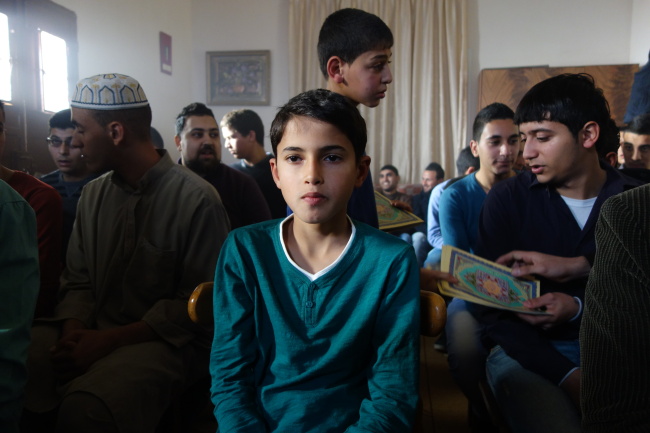
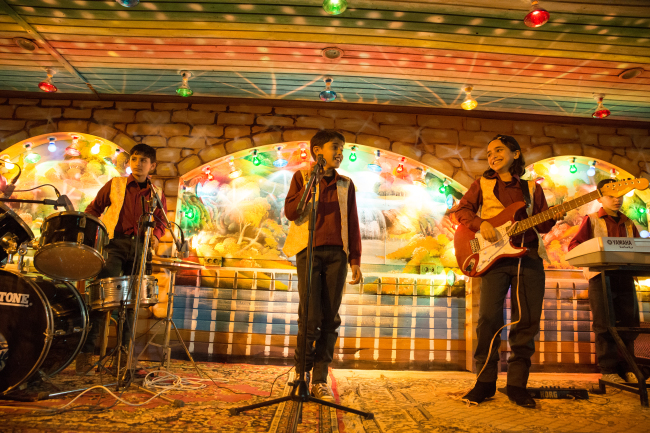
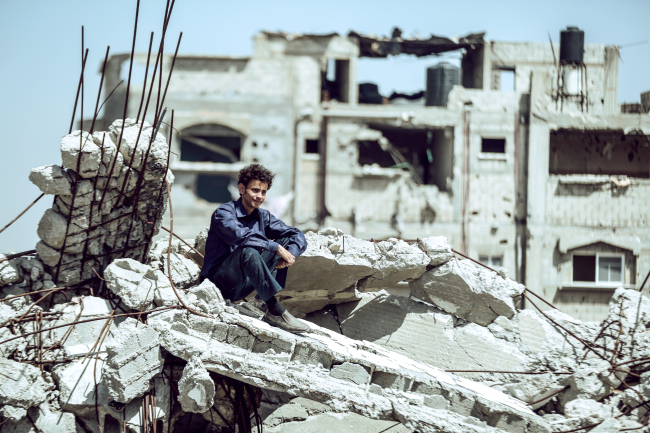
This year, a new program called the “master class” has been added, in which renowned film director Merzak Allouache will explain his work in front of a live audience. Programs such as “Arabian Cinetalk” and “Talk with the audience” will enable participants to discuss the Arab Spring and gender empowerment with film director Hala Khalil.
“The Arab Spring, which began in late 2010, had a great impact on the Middle East and North African communities, and this has been fully reflected in these films through motifs such as anger against ruling powers and critique of economic disparities,” said Kim Young-woo, program director of the Busan International Film Festival.
“The growth of Arab films has been impressive, bolstered by support from the Dubai International Film Festival and Doha Film Institute.”
The opening film “Nawara” by Hala Khalil from Egypt takes place in the midst of the 2011 Egyptian Revolution. Through Nawara, a young, hopeful housemaid who works for a wealthy family, it exposes the contradictions and schisms between the rich and powerful, and poor and subjugated.

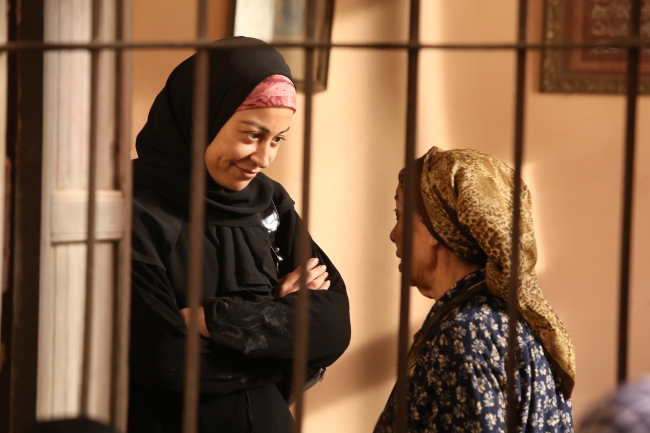
“Degrade” by Arab Nasser and Tarzan Nasser from Qatar was shot in a beauty salon in Palestine’s Gaza Strip. It spotlights explosive tensions laden in people’s everyday life, as leisurely conversations between women of diverse backgrounds suddenly near throes of death following gunfire and an explosion.
“Let Them Come” by Salem Brahimi sheds light on Algeria in the late 1980s and 1990s, when the country faced the choice of embracing either Western democracy or Islamic fundamentalism. Protagonist Nouredine, a civil servant with literary aspirations, witnesses her life and society crumble under extremist pressures, which claimed 200,000 lives in Algeria.
“The Idol” by Hany Abu-Assad from Palestine is based on the true story of Mohammad Assaf, the winner of “Arab Idol 2013.” Similar to the young hero in the British film “Slumdog Millionaire,” Mohamad is a young boy in destroyed and destitute Gaza, with ambitions to sing in the Cairo Opera House. He miraculously escapes the “open air prison” that is Gaza, and auditions for “Arab Idol,” the most popular talent show in the region.
The event is hosted by the Korea-Arab Society, a nonprofit organization dedicated to strengthening bilateral relations through diplomacy, trade and investment, culture and education. Governments of Korea and 22 member states of the Arab League, businesses and civil organizations are participants.
By Joel Lee (joel@heraldcorp.com)
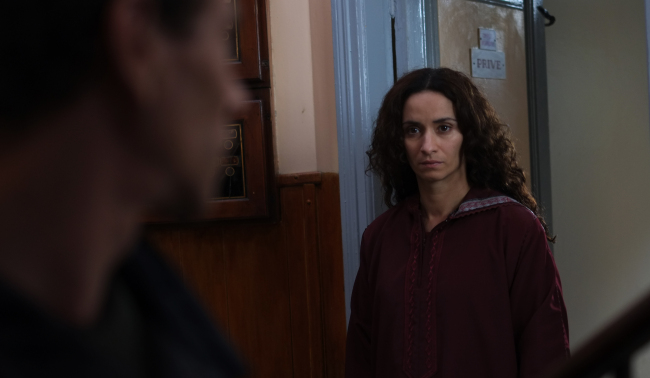
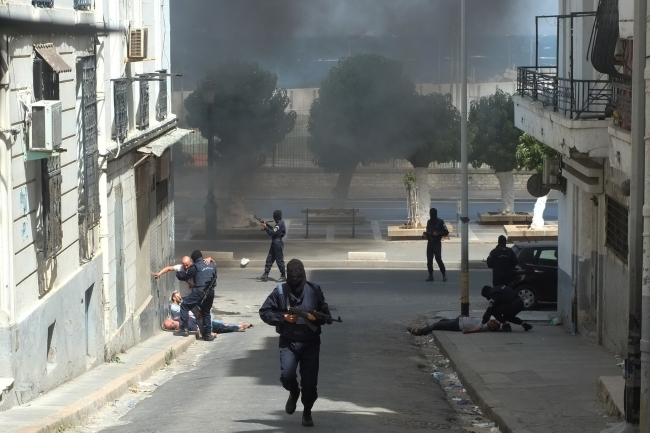
-
Articles by Korea Herald








![[From the Scene] Monks, Buddhists hail return of remains of Buddhas](http://res.heraldm.com/phpwas/restmb_idxmake.php?idx=644&simg=/content/image/2024/04/19/20240419050617_0.jpg&u=20240419175937)






![[From the Scene] Monks, Buddhists hail return of remains of Buddhas](http://res.heraldm.com/phpwas/restmb_idxmake.php?idx=652&simg=/content/image/2024/04/19/20240419050617_0.jpg&u=20240419175937)

![[KH Explains] Hyundai's full hybrid edge to pay off amid slow transition to pure EVs](http://res.heraldm.com/phpwas/restmb_idxmake.php?idx=652&simg=/content/image/2024/04/18/20240418050645_0.jpg&u=20240419100350)

![[Today’s K-pop] Illit drops debut single remix](http://res.heraldm.com/phpwas/restmb_idxmake.php?idx=642&simg=/content/image/2024/04/19/20240419050612_0.jpg&u=)